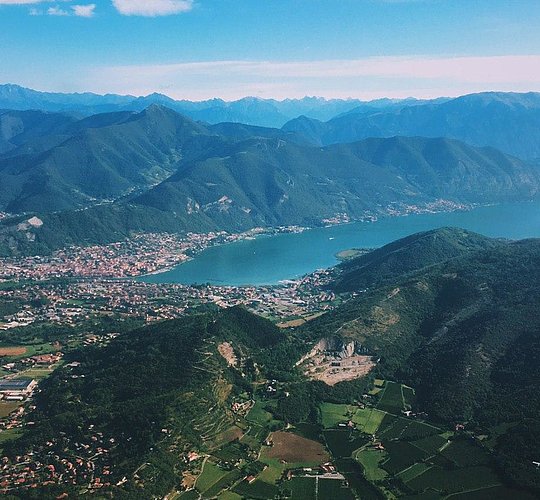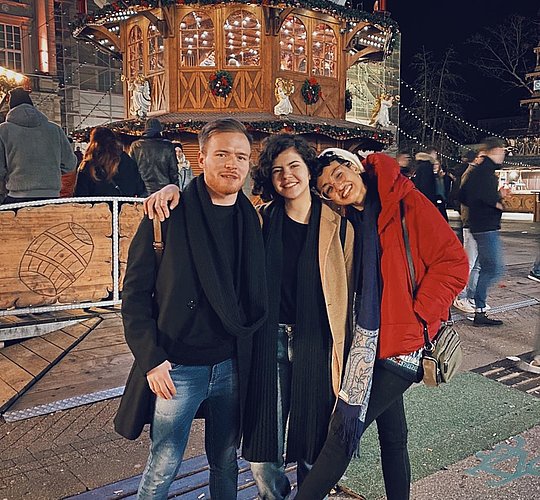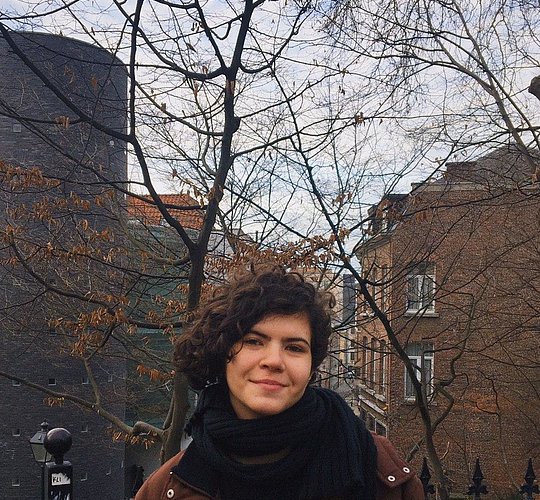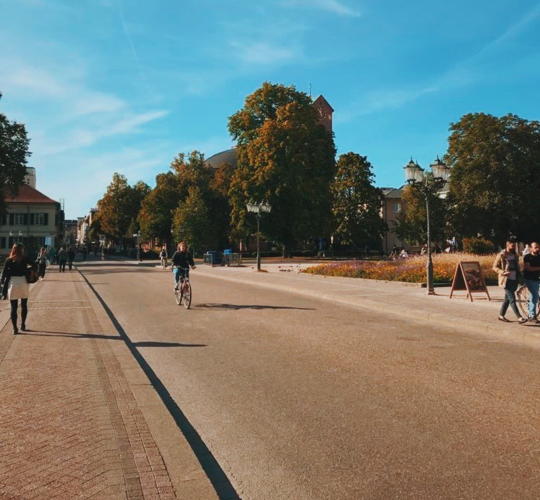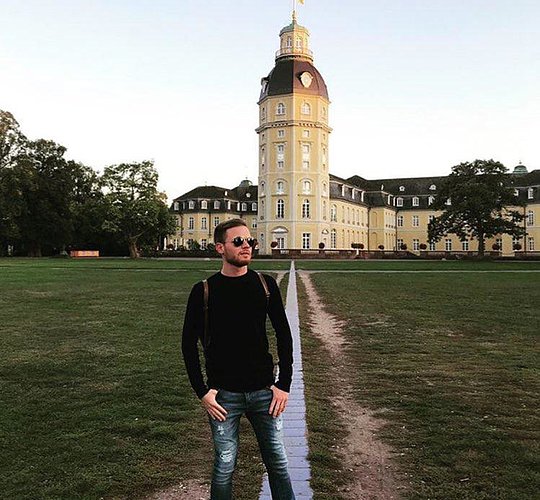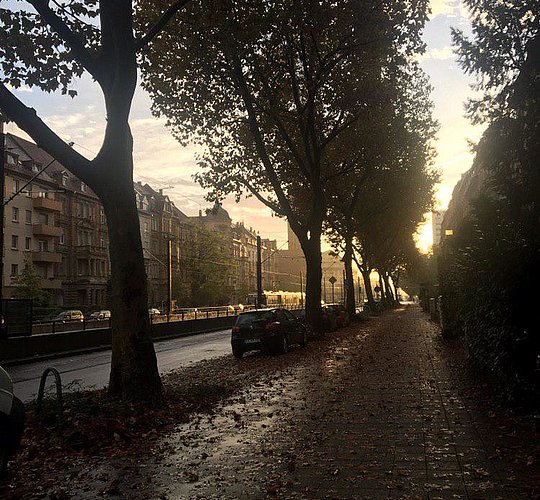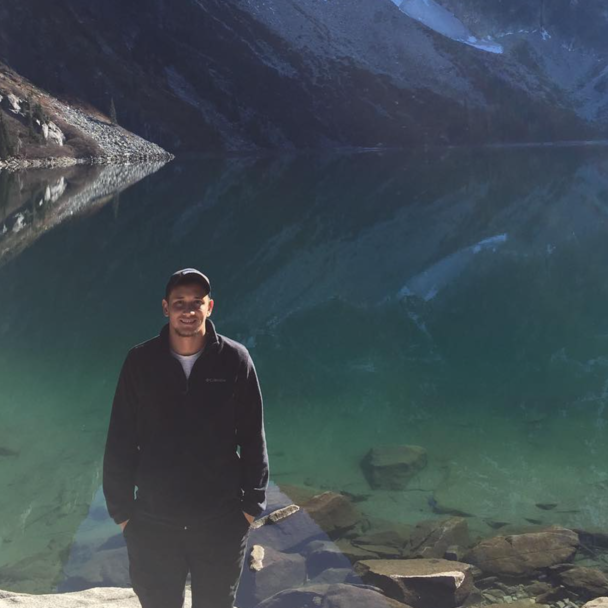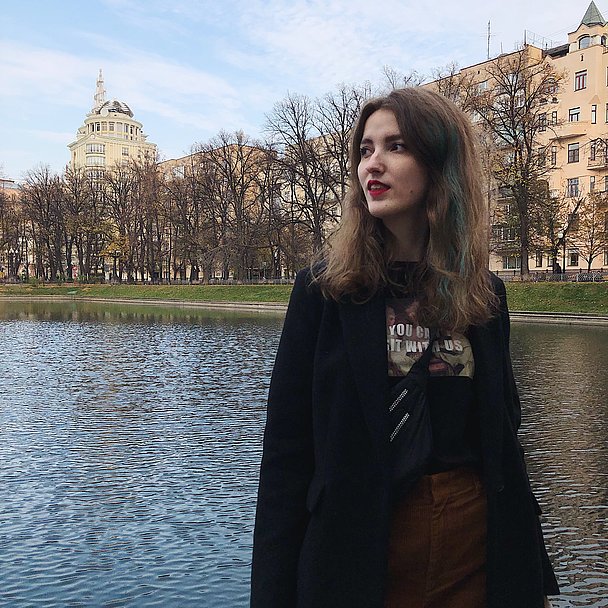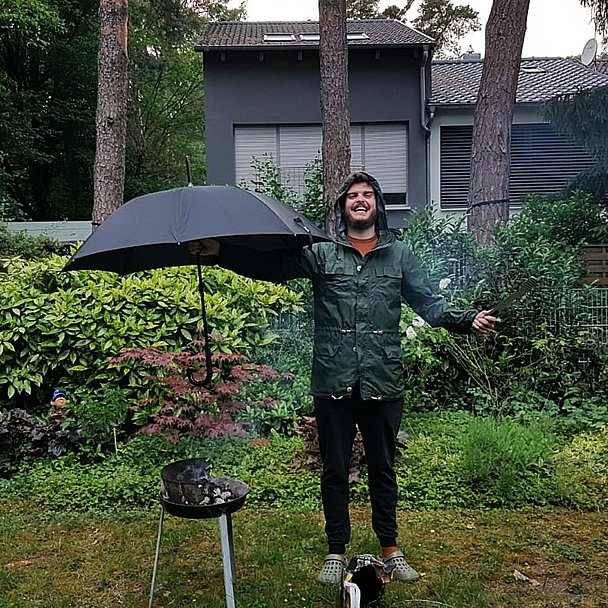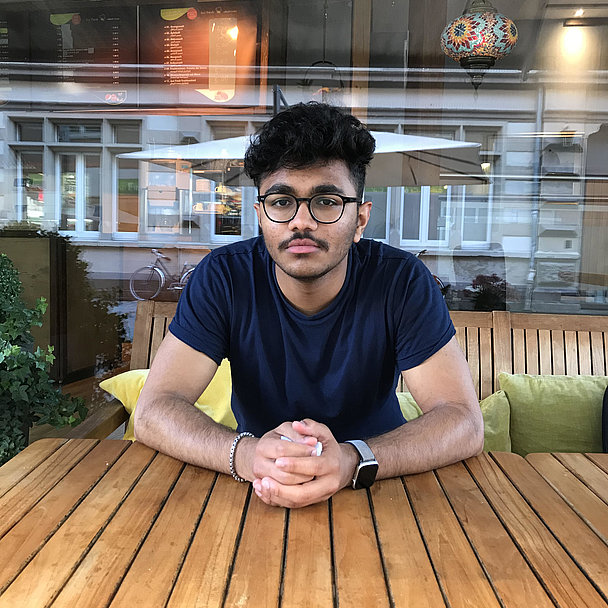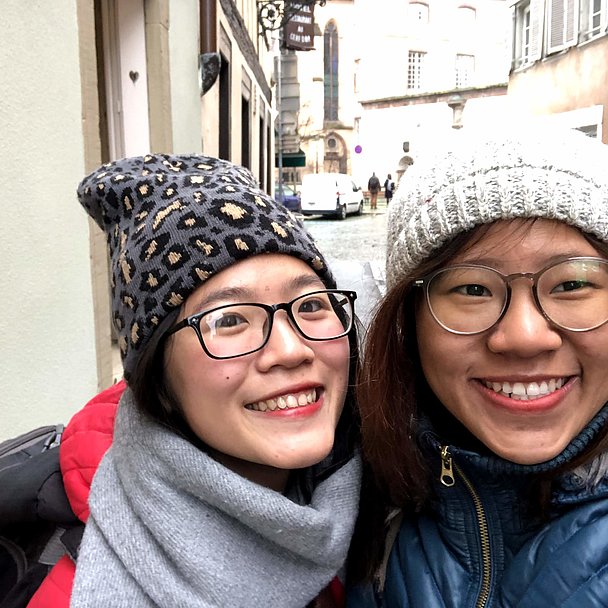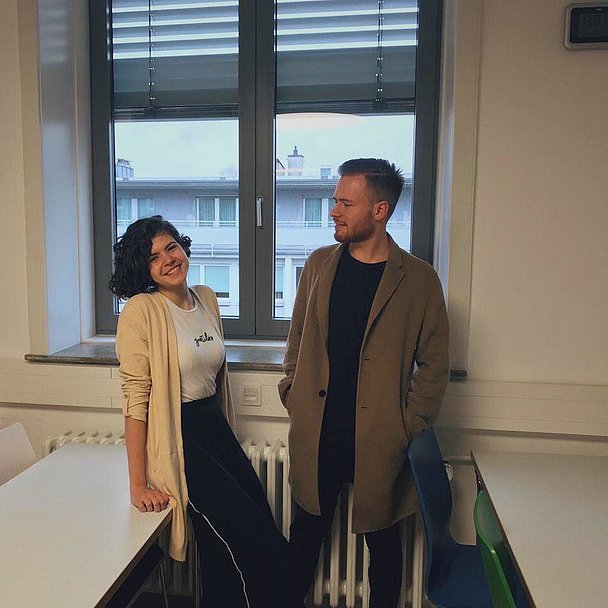Do you have further questions about Karls or your studies? Then just write me. I will be at your side with words and deeds and look forward to hear from you.
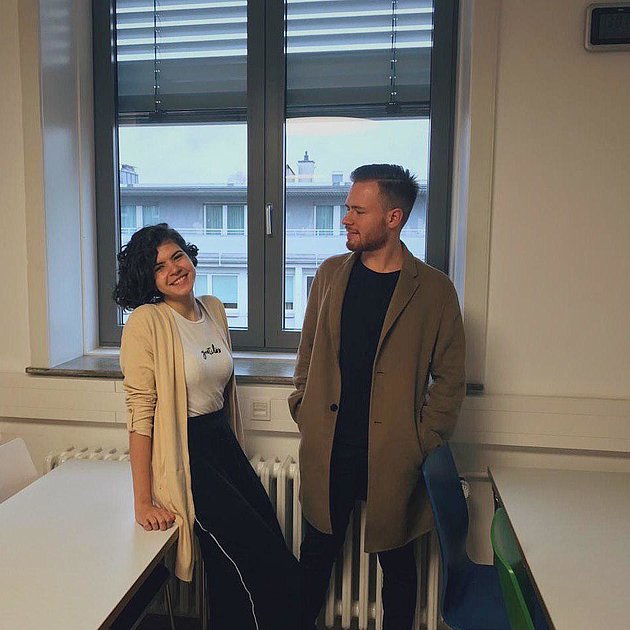
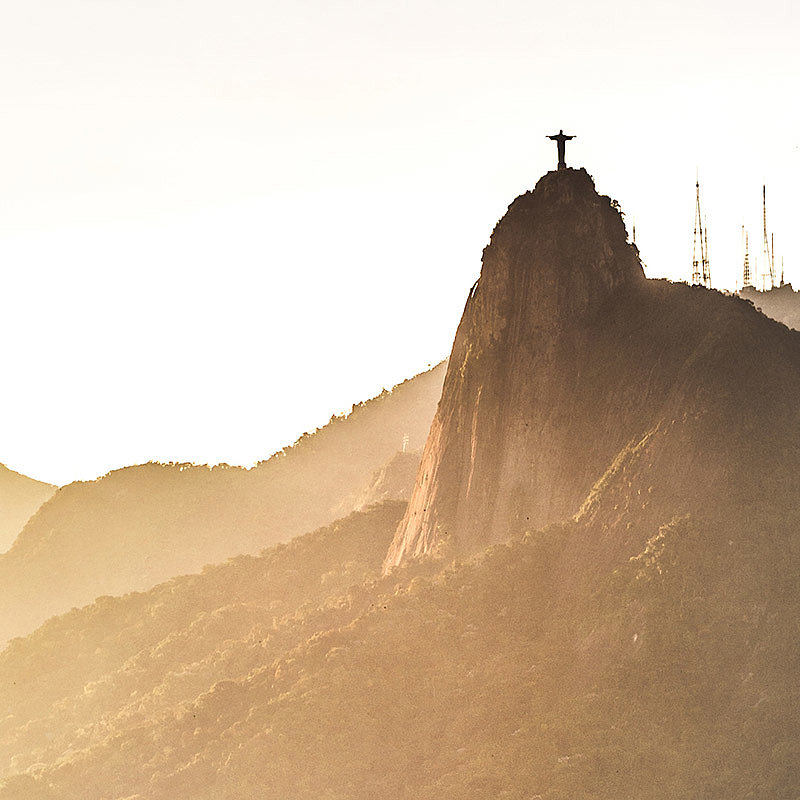
Celinne De
Hi all! My name’s Celinne, and I’m studying Responsable Business. I’ve always wanted to study abroad, and after my exchange program in Ireland I knew that Europe had my heart. I’ve never really considered studying in Germany as I thought I had to speak German to come here, but then I found out about Karlshochschule, and I immediately got amazed, and I applied to do my Foundation Year here in 2019. It’s incredible to study at a university that is so open to new ideas, as a student here you have lots of opportunities to engage with everything, and you feel really empowered. I can learn something about a different culture every single day, and it doesn’t take long to realize that you are part of a big international family. I thought the culture shock would be huge when I first got to Karlsruhe, but people here are very kind and friendly. I’m really glad that I can help new people to come to Karls, you can definitely count on me for anything. Moving to a new country is always hard, but with some help everything gets better. I’m looking forward to meeting you all!
Hi everyone! My name is João Marcos Beber and I’m one of the Brazilians ambassadors at Karlshochschule. I’m originally from Pomerode, a small city in the south of Brazil. I became a student at Karls in 2019 to do my foundation year, and right now I'm studying International Business with focus in Marketing. I have already been in Germany for two years, in 2015 in a High School exchange program and in 2017 as a volunteer. During these two years I fell in love with Germany, and I was looking forward to being a student here. I found out about Karlshochschule through the AFS Intercultural scholarship. I describe Karlshochschule as an open, dynamic, and intercultural space, where every day I have new ideas, and I also network. It’s a safe space where I can share and talk about my opinions and ideas without being judged. Everyday I’m becoming more and more a global citizen and Karls’ environment is really helping me a lot. The university staff is always very friendly and open to help students in every situation, you really feel like Karls is your home. If you have any question about Karlshochschule or Karlsruhe feel free to contact me at any time and I’m looking forward to seeing you soon at Karlshochschule!
You can contact us on cde@karlshochschule.de or jbeber@karlshochschule.de & also on our social media d.celinne or joao_beber

News
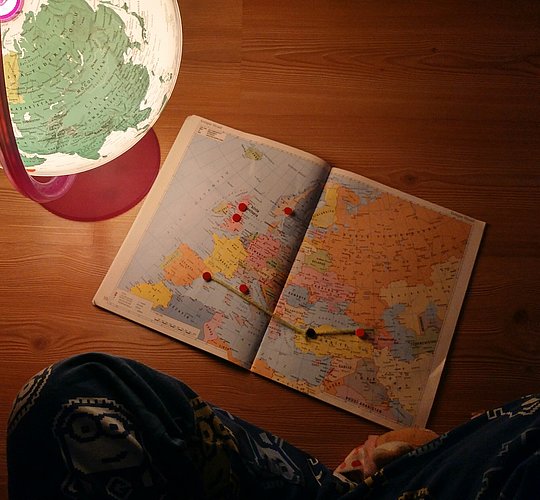
The bubble around us
By Celinne
Have you ever thought about the bubble around you?
It always amazes me how international the bubble that I live in is. The city, the place I live, the university I study at, needless to say, are full of Germans. Since well, we live in Germany. What's impressive though, is that even then, 90% of them also have an intercultural background.
Since I’ve come to Karlsruhe, I’ve never met so many people from many places, each of them with a very specific and different life experience. Some left their countries because they were seeking better conditions of life, others because they wanted to join their partners, experience another culture, learn a language, get into a specific study program, emigrate with their families, or they really just wanted to spend some time abroad.
The why doesn’t really matter.
Once you are in an intercultural environment, you really get used to it. Whether you like it or not, you get to know other cultures by osmosis. You learn random words in other languages, you see the way your flatmates from abroad interact with their families and partners, how they cook, you hear opinions about both trivial and complex topics. I can learn about Lebanese pop music in the 2000's and discuss how Latin American schools talk about sexuality in the same evening.
You notice the way they act in class, how they spend their free time, and why they celebrate or complain about things. You share your thoughts and perception about other cultures too.
The cultural baggage someone has is always there, but it's not something fixed. In an environment like this, we share, or better said, we exchange it daily. So much can be learned with those seemingly banal interactions.
What does that mean for us?
I'm not so sure, for me personally it means everything. You definitely don’t have to be an international student per se to have an international experience. All it takes it’s a bit of open mindedness, and the willingness to be in contact with other cultures. The world is globalized enough so that we can all learn about other countries and traditions without even getting out of our hometown. But I'm forever grateful for going abroad, bringing my cultural baggage with me, and it leaving it completely open for anyone interested in doing the same.
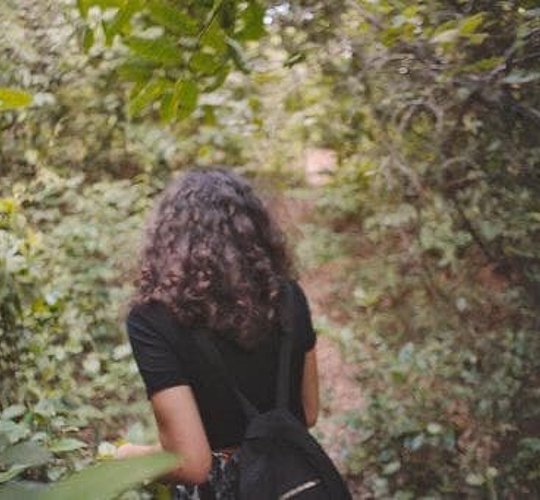
Sports in Germany
By Celinne
It’s honestly surreal the quantity of sports people do in Germany. I don’t necessarily mean quantity-wise; what impresses me is how many activities a regular person is interested in. This is based on the people I have contact with, so I’m not sure how biased I’m in that sense, but literally even the least sporty person I know does at least one physical activity for fun every now and then.
First, chances are you’re going to have a bike and cycle around quite a lot, that itself already is better than just relying on cars or public transportation. Karlsruhe is really flat, and after Winter, every sunny day is an invitation to go biking to the nearest lake, or go hiking in the Black Forest. You will also notice that people always hang out around the city’s castle, and someone would always bring a ball or the gear necessary to play some very typical German game (more on that in another post).
My friends in Brazil are also very active, but an average person there would usually do only the “typical” stuff: either go to the gym, dance, do martial arts, run, or play anything involving a ball (yes, soccer is usually our to-go game). Here, I feel like most people have much more varied activities and interests. Climbing, gymnastics, hiking, cycling trips, swimming, skating, yoga are much more common practices than in Brazil, and most people I know would at some point try more than one of those out.
It’s quite interesting to see that there's a certain openness to experimenting new hobbies here, it doesn't matter your age, gender or how active you are. I first realized this when my computer scientist friend, who fits exactly in the “geek stereotype” said that he was taking zumba classes, which I honestly don’t see happening in Brazil. Here, if you think something is fun, you simply try it out with no second thoughts. That brings us so many new possibilities!
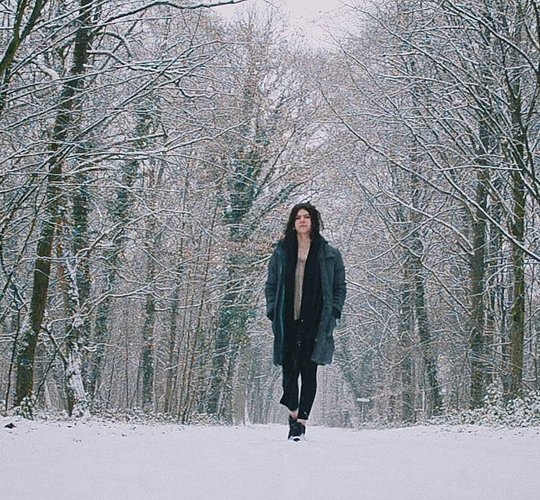
Corona + Winter = please help me
By Celinne
Winter is tricky. As much as I prefer cold seasons (I’ve spent most of my life in a town where everyday was +34 °C, so yes, I am traumatized, sorry summer), it does not help peope who are already feeling blue due to Corona. Not only is it freezing, and the sky is all sorts of greys, but also everything seems dark, and even the trees look upset. Unless it’s a rare snowy day, then I feel delightful.
In 2019, the beauty of winter was the winter market, which illuminated the city and warmed my heart with German "Glühwein". I was going out a lot and actually escaped to Spain for a while to see more sunlight.
Fast forward to 2020/21: it’s winter and you need to be stuck at home. Okay. What am I supposed to do with this?
Everything is closed, you still can go outside but it’s freezing. You can stay inside but after one year of spending most of time in the same rooms you already know all the tiny cracks of the building, maybe you even named them in one desperate evening. I’m tired of sitting down. You already know how many steps it takes to go from your room to the kitchen and from there to the toilet. That’s disturbing. I stare at the window so much that I am fairly sure people think I am creepy.
The alternative then is to really be grateful for sunny days, conversations with flatmates that are as burnt out as you, and when new products arrive at the supermarket so I can look at them for an unnecessary long time (my groceries shopping are now part of my “hang out” time).
No matter how many good habits you have to cope with this, reading, exercising as you can, experimenting with hobbies or starting personal projects, being this much time at one single place is honestly distressing. At some point you just want to scream.
You do need to take a break. So please guys, wear something warm and do the only thing you can do: take your walks. Go see the sad trees and the colorless sky, in corona times, you might find that it is not so dull and uninspiring as it looks.
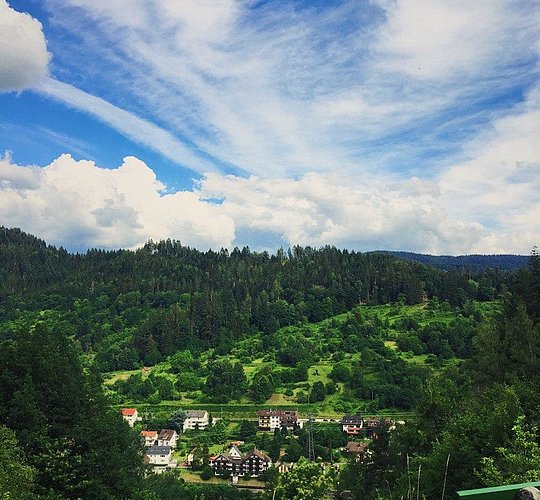
Hiking in Germany
By Celinne
Since we have limited options of things to do with the corona situation, I started to explore more different types of outdoor activities, and I realized how fun they can be. I always liked to be around nature, taking long walks admiring the landscape, but weirdly enough I’ve never tried hiking before. Probably because to do that in Brazil you’d have to have a car, in Germany though, a lot of people go for hiking as they are easily accessible. Karlsruhe is an amazing city for hiking lovers, the Black Forest can be reached by train in less than an hour, and you can take buses to reach the hiking paths if you’re not so motivated to walk much. Another possibility is to take your bike with you and cycle up the mountain (although I personally would probably pass out biking uphill). The view that you get on top of the mountains is breathtaking, and it is a really good way to enjoy summer here, especially when you stop by a lake. There are so many different trails to take that my goal for the summer is actually to explore the Black Forest as much as I can!

The bubble around us
By Celinne
Have you ever thought about the bubble around you?
It always amazes me how international the bubble that I live in is. The city, the place I live, the university I study at, needless to say, are full of Germans. Since well, we live in Germany. What's impressive though, is that even then, 90% of them also have an intercultural background.
Since I’ve come to Karlsruhe, I’ve never met so many people from many places, each of them with a very specific and different life experience. Some left their countries because they were seeking better conditions of life, others because they wanted to join their partners, experience another culture, learn a language, get into a specific study program, emigrate with their families, or they really just wanted to spend some time abroad.
The why doesn’t really matter.
Once you are in an intercultural environment, you really get used to it. Whether you like it or not, you get to know other cultures by osmosis. You learn random words in other languages, you see the way your flatmates from abroad interact with their families and partners, how they cook, you hear opinions about both trivial and complex topics. I can learn about Lebanese pop music in the 2000's and discuss how Latin American schools talk about sexuality in the same evening.
You notice the way they act in class, how they spend their free time, and why they celebrate or complain about things. You share your thoughts and perception about other cultures too.
The cultural baggage someone has is always there, but it's not something fixed. In an environment like this, we share, or better said, we exchange it daily. So much can be learned with those seemingly banal interactions.
What does that mean for us?
I'm not so sure, for me personally it means everything. You definitely don’t have to be an international student per se to have an international experience. All it takes it’s a bit of open mindedness, and the willingness to be in contact with other cultures. The world is globalized enough so that we can all learn about other countries and traditions without even getting out of our hometown. But I'm forever grateful for going abroad, bringing my cultural baggage with me, and it leaving it completely open for anyone interested in doing the same.

Sports in Germany
By Celinne
It’s honestly surreal the quantity of sports people do in Germany. I don’t necessarily mean quantity-wise; what impresses me is how many activities a regular person is interested in. This is based on the people I have contact with, so I’m not sure how biased I’m in that sense, but literally even the least sporty person I know does at least one physical activity for fun every now and then.
First, chances are you’re going to have a bike and cycle around quite a lot, that itself already is better than just relying on cars or public transportation. Karlsruhe is really flat, and after Winter, every sunny day is an invitation to go biking to the nearest lake, or go hiking in the Black Forest. You will also notice that people always hang out around the city’s castle, and someone would always bring a ball or the gear necessary to play some very typical German game (more on that in another post).
My friends in Brazil are also very active, but an average person there would usually do only the “typical” stuff: either go to the gym, dance, do martial arts, run, or play anything involving a ball (yes, soccer is usually our to-go game). Here, I feel like most people have much more varied activities and interests. Climbing, gymnastics, hiking, cycling trips, swimming, skating, yoga are much more common practices than in Brazil, and most people I know would at some point try more than one of those out.
It’s quite interesting to see that there's a certain openness to experimenting new hobbies here, it doesn't matter your age, gender or how active you are. I first realized this when my computer scientist friend, who fits exactly in the “geek stereotype” said that he was taking zumba classes, which I honestly don’t see happening in Brazil. Here, if you think something is fun, you simply try it out with no second thoughts. That brings us so many new possibilities!

Corona + Winter = please help me
By Celinne
Winter is tricky. As much as I prefer cold seasons (I’ve spent most of my life in a town where everyday was +34 °C, so yes, I am traumatized, sorry summer), it does not help peope who are already feeling blue due to Corona. Not only is it freezing, and the sky is all sorts of greys, but also everything seems dark, and even the trees look upset. Unless it’s a rare snowy day, then I feel delightful.
In 2019, the beauty of winter was the winter market, which illuminated the city and warmed my heart with German "Glühwein". I was going out a lot and actually escaped to Spain for a while to see more sunlight.
Fast forward to 2020/21: it’s winter and you need to be stuck at home. Okay. What am I supposed to do with this?
Everything is closed, you still can go outside but it’s freezing. You can stay inside but after one year of spending most of time in the same rooms you already know all the tiny cracks of the building, maybe you even named them in one desperate evening. I’m tired of sitting down. You already know how many steps it takes to go from your room to the kitchen and from there to the toilet. That’s disturbing. I stare at the window so much that I am fairly sure people think I am creepy.
The alternative then is to really be grateful for sunny days, conversations with flatmates that are as burnt out as you, and when new products arrive at the supermarket so I can look at them for an unnecessary long time (my groceries shopping are now part of my “hang out” time).
No matter how many good habits you have to cope with this, reading, exercising as you can, experimenting with hobbies or starting personal projects, being this much time at one single place is honestly distressing. At some point you just want to scream.
You do need to take a break. So please guys, wear something warm and do the only thing you can do: take your walks. Go see the sad trees and the colorless sky, in corona times, you might find that it is not so dull and uninspiring as it looks.

Hiking in Germany
By Celinne
Since we have limited options of things to do with the corona situation, I started to explore more different types of outdoor activities, and I realized how fun they can be. I always liked to be around nature, taking long walks admiring the landscape, but weirdly enough I’ve never tried hiking before. Probably because to do that in Brazil you’d have to have a car, in Germany though, a lot of people go for hiking as they are easily accessible. Karlsruhe is an amazing city for hiking lovers, the Black Forest can be reached by train in less than an hour, and you can take buses to reach the hiking paths if you’re not so motivated to walk much. Another possibility is to take your bike with you and cycle up the mountain (although I personally would probably pass out biking uphill). The view that you get on top of the mountains is breathtaking, and it is a really good way to enjoy summer here, especially when you stop by a lake. There are so many different trails to take that my goal for the summer is actually to explore the Black Forest as much as I can!

Sports in Germany
By Celinne
It’s honestly surreal the quantity of sports people do in Germany. I don’t necessarily mean quantity-wise; what impresses me is how many activities a regular person is interested in. This is based on the people I have contact with, so I’m not sure how biased I’m in that sense, but literally even the least sporty person I know does at least one physical activity for fun every now and then.
First, chances are you’re going to have a bike and cycle around quite a lot, that itself already is better than just relying on cars or public transportation. Karlsruhe is really flat, and after Winter, every sunny day is an invitation to go biking to the nearest lake, or go hiking in the Black Forest. You will also notice that people always hang out around the city’s castle, and someone would always bring a ball or the gear necessary to play some very typical German game (more on that in another post).
My friends in Brazil are also very active, but an average person there would usually do only the “typical” stuff: either go to the gym, dance, do martial arts, run, or play anything involving a ball (yes, soccer is usually our to-go game). Here, I feel like most people have much more varied activities and interests. Climbing, gymnastics, hiking, cycling trips, swimming, skating, yoga are much more common practices than in Brazil, and most people I know would at some point try more than one of those out.
It’s quite interesting to see that there's a certain openness to experimenting new hobbies here, it doesn't matter your age, gender or how active you are. I first realized this when my computer scientist friend, who fits exactly in the “geek stereotype” said that he was taking zumba classes, which I honestly don’t see happening in Brazil. Here, if you think something is fun, you simply try it out with no second thoughts. That brings us so many new possibilities!

Corona + Winter = please help me
By Celinne
Winter is tricky. As much as I prefer cold seasons (I’ve spent most of my life in a town where everyday was +34 °C, so yes, I am traumatized, sorry summer), it does not help peope who are already feeling blue due to Corona. Not only is it freezing, and the sky is all sorts of greys, but also everything seems dark, and even the trees look upset. Unless it’s a rare snowy day, then I feel delightful.
In 2019, the beauty of winter was the winter market, which illuminated the city and warmed my heart with German "Glühwein". I was going out a lot and actually escaped to Spain for a while to see more sunlight.
Fast forward to 2020/21: it’s winter and you need to be stuck at home. Okay. What am I supposed to do with this?
Everything is closed, you still can go outside but it’s freezing. You can stay inside but after one year of spending most of time in the same rooms you already know all the tiny cracks of the building, maybe you even named them in one desperate evening. I’m tired of sitting down. You already know how many steps it takes to go from your room to the kitchen and from there to the toilet. That’s disturbing. I stare at the window so much that I am fairly sure people think I am creepy.
The alternative then is to really be grateful for sunny days, conversations with flatmates that are as burnt out as you, and when new products arrive at the supermarket so I can look at them for an unnecessary long time (my groceries shopping are now part of my “hang out” time).
No matter how many good habits you have to cope with this, reading, exercising as you can, experimenting with hobbies or starting personal projects, being this much time at one single place is honestly distressing. At some point you just want to scream.
You do need to take a break. So please guys, wear something warm and do the only thing you can do: take your walks. Go see the sad trees and the colorless sky, in corona times, you might find that it is not so dull and uninspiring as it looks.

Hiking in Germany
By Celinne
Since we have limited options of things to do with the corona situation, I started to explore more different types of outdoor activities, and I realized how fun they can be. I always liked to be around nature, taking long walks admiring the landscape, but weirdly enough I’ve never tried hiking before. Probably because to do that in Brazil you’d have to have a car, in Germany though, a lot of people go for hiking as they are easily accessible. Karlsruhe is an amazing city for hiking lovers, the Black Forest can be reached by train in less than an hour, and you can take buses to reach the hiking paths if you’re not so motivated to walk much. Another possibility is to take your bike with you and cycle up the mountain (although I personally would probably pass out biking uphill). The view that you get on top of the mountains is breathtaking, and it is a really good way to enjoy summer here, especially when you stop by a lake. There are so many different trails to take that my goal for the summer is actually to explore the Black Forest as much as I can!
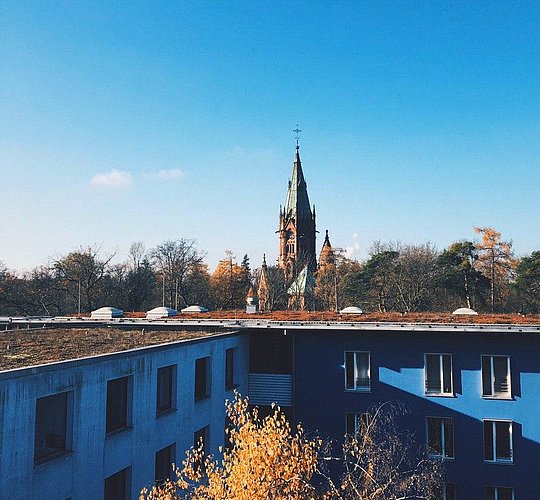
Accommodation in Karlsruhe
By Celinne:
There’re lots of universities in Karlsruhe, and as the city is full of students, finding accommodation here can be hard, especially in the beginning of the semester. You might need to message several people to get an interview, and it’s not uncommon to be asked even for CVs when applying. Most students live in shared apartments with other students, the famous WGs. There’re many student dormitories (Studentenwohnheim) in Karlsruhe as well, where you can really experience the student life. Depending on the dorm, you can live in a small studio, or you might need to share the kitchen/bathrooms with other students. I’m living in the biggest self-administered dormitory in all Germany so the students that live here actually decide how things will be like. The atmosphere is incredible, we have bars in every building, as well as music, weight and computer rooms. Living in these places is a great way to make friends, because there’s always someone around that would be willing to hang out.

Sports in Germany
By Celinne
It’s honestly surreal the quantity of sports people do in Germany. I don’t necessarily mean quantity-wise; what impresses me is how many activities a regular person is interested in. This is based on the people I have contact with, so I’m not sure how biased I’m in that sense, but literally even the least sporty person I know does at least one physical activity for fun every now and then.
First, chances are you’re going to have a bike and cycle around quite a lot, that itself already is better than just relying on cars or public transportation. Karlsruhe is really flat, and after Winter, every sunny day is an invitation to go biking to the nearest lake, or go hiking in the Black Forest. You will also notice that people always hang out around the city’s castle, and someone would always bring a ball or the gear necessary to play some very typical German game (more on that in another post).
My friends in Brazil are also very active, but an average person there would usually do only the “typical” stuff: either go to the gym, dance, do martial arts, run, or play anything involving a ball (yes, soccer is usually our to-go game). Here, I feel like most people have much more varied activities and interests. Climbing, gymnastics, hiking, cycling trips, swimming, skating, yoga are much more common practices than in Brazil, and most people I know would at some point try more than one of those out.
It’s quite interesting to see that there's a certain openness to experimenting new hobbies here, it doesn't matter your age, gender or how active you are. I first realized this when my computer scientist friend, who fits exactly in the “geek stereotype” said that he was taking zumba classes, which I honestly don’t see happening in Brazil. Here, if you think something is fun, you simply try it out with no second thoughts. That brings us so many new possibilities!

Hiking in Germany
By Celinne
Since we have limited options of things to do with the corona situation, I started to explore more different types of outdoor activities, and I realized how fun they can be. I always liked to be around nature, taking long walks admiring the landscape, but weirdly enough I’ve never tried hiking before. Probably because to do that in Brazil you’d have to have a car, in Germany though, a lot of people go for hiking as they are easily accessible. Karlsruhe is an amazing city for hiking lovers, the Black Forest can be reached by train in less than an hour, and you can take buses to reach the hiking paths if you’re not so motivated to walk much. Another possibility is to take your bike with you and cycle up the mountain (although I personally would probably pass out biking uphill). The view that you get on top of the mountains is breathtaking, and it is a really good way to enjoy summer here, especially when you stop by a lake. There are so many different trails to take that my goal for the summer is actually to explore the Black Forest as much as I can!
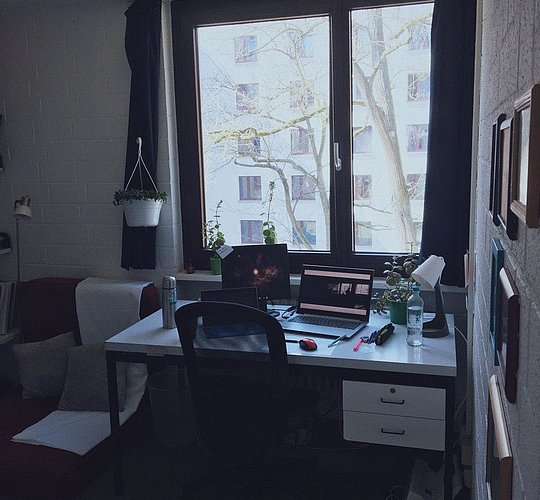
Staying inside
By Celinne
As of last month, we switched to online classes, since all non-essential business must remain closed in Germany. I honestly don’t mind staying at home, although not going to the gym is making myself go a little bit crazy. I do miss my friends and having random conversations during classes breaks at Karls. Social distancing is not a huge problem for me though, since I live in a student dorm, I still interact with people daily. During this period, I’ve tried my best to create a routine that makes me feel good: I’m waking up early, exercising daily, going for walks alone (the weather is great right now!), meditating and trying to do different things. Guess who’s taking dancing classes on YouTube right now? Regarding the online classes, Karls did a great job in implementing it so quickly. Other students from different universities have no clue about what is going to happen. But I’m not going to lie and say they work fantastic for me. I have some trouble concentrating and being engaged in classes, but as anything in life, it’s just a matter of mindset. We all must put some extra effort in helping ourselves during this difficult time. It helps if we understand that although we’re isolated, we’re doing this together to protect not only our loved ones, but also our community as a whole. We’re doing good. Take care and stay inside. Oh, wash your hands too, that’s important.
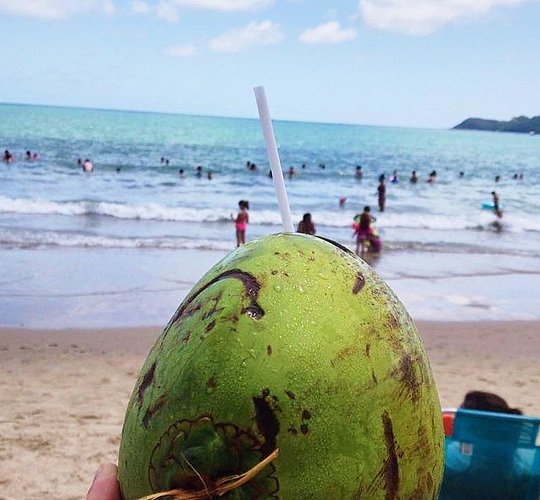
Winter break
By João Beber:
The winter break for the foundation year was from 20.12.2019 until 18.02.2020. During this time, I was back home, in Brazil. It was nice to see everyone again and spend Christmas with my family. It is summer now in Brazil, so I’ve been to my summer house at the beach, where I´ve played beach volleyball, swam and I ran every morning at the beach. It was nice to feel the warm weather again. Also, during my time there, I visited São Paulo, where I´ve met a friend from my first exchange program in Germany in 2015.
In this post I would like to share some insights that I had during this time in Brazil. For example, I could notice that I´ve developed much more the sense of responsibility since I moved to Germany, that is because here I’m living alone, so I need to cook, wash my clothes, etc. Karls gave me the opportunity to meet people from different parts of the world, and with this, I´ve learned about new cultures and I had the experience to share all that with my family and friends, it was amazing.
So, on 14.02.2020 I came back to Germany and for my surprise it isn't that cold anymore, for example on Sunday we had an amazing 20 degrees weather. I'm already excited that spring is coming soon.
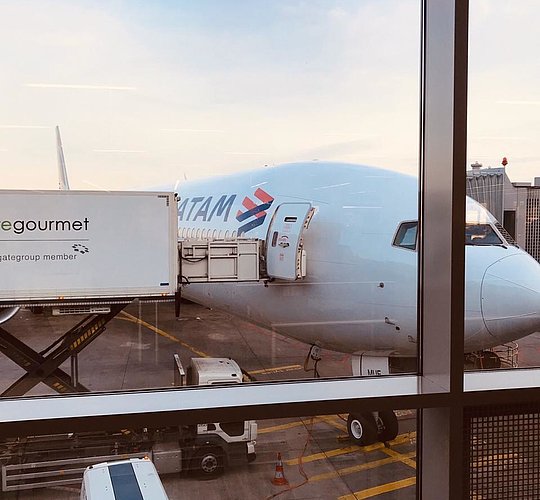
The corona time
By João Beber:
Hello everyone. In today’s blog I will be writing about my quarantine and online classes experiences. The coronavirus changed our daily life, now it is time to stay at home and be socially distancing. Also, our semester that started in March has switched from face-to-face to online classes. I´ve decided to come back to Brazil to be with my family during this time. I arrived here on the 18th of March. During the first two weeks I was isolated from everyone since I came from an area with many cases abroad. So, for the safety of everyone I stayed in my bedroom almost this whole period. I confess that it was not easy, I’m a type of person who enjoys spending time with other people, going for walks, having my freedom and to just stay in your room kind of makes you feel bad and a little bit depressive. During that time many things came into my mind, for example: I never thought in my life the importance of meeting friends, having the freedom to travel, and being able to go anywhere. Of course, now I will give much more importance to these things. I promise to all the people who might invite me for something, that I will never use an excuse to not go out again, such as I’m tired, I´m not in the mood etc. Now I see how these things are important for my life, and my mental health.
The online classes have also been a different experience for me. It has been much more comfortable but also sometimes challenging. You need to focus more and try very hard to not lose focus, since at home you have many things that can distract you. But at the end for me it has been a great experience during this difficult time. The university is offering all support that we need. I´m always trying to be very positive and I hope our normal life will come back soon. Meanwhile, try to do things that you enjoy, have video calls with friends and family, or a tv show marathon, drink some wine or beer, and just keep your mind occupied. Soon everything will be fine again. If you need some help or just want to chat with someone, do not hesitate to write to me. I wish you all the best.

Staying inside
By Celinne
As of last month, we switched to online classes, since all non-essential business must remain closed in Germany. I honestly don’t mind staying at home, although not going to the gym is making myself go a little bit crazy. I do miss my friends and having random conversations during classes breaks at Karls. Social distancing is not a huge problem for me though, since I live in a student dorm, I still interact with people daily. During this period, I’ve tried my best to create a routine that makes me feel good: I’m waking up early, exercising daily, going for walks alone (the weather is great right now!), meditating and trying to do different things. Guess who’s taking dancing classes on YouTube right now? Regarding the online classes, Karls did a great job in implementing it so quickly. Other students from different universities have no clue about what is going to happen. But I’m not going to lie and say they work fantastic for me. I have some trouble concentrating and being engaged in classes, but as anything in life, it’s just a matter of mindset. We all must put some extra effort in helping ourselves during this difficult time. It helps if we understand that although we’re isolated, we’re doing this together to protect not only our loved ones, but also our community as a whole. We’re doing good. Take care and stay inside. Oh, wash your hands too, that’s important.
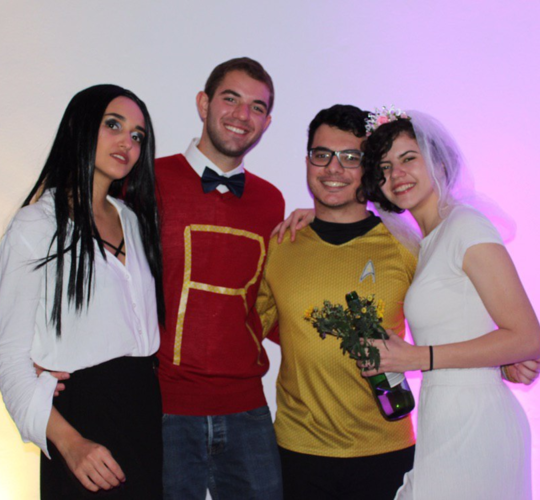
The atmosphere of Karlshochschule
By Celinne de Paula:
Karlshochschule is different in many aspects, and because it's a small university, it provides us an intimate and cozy environment. All the classrooms have glass walls, and the departments’ doors are always open. Because of that, you can get really close to the staff and professors here, and conversations with the director of the university are not uncommon at all. One of my favorite things here is the Karls’ events: karaoke nights, Halloween parties and events for special dates are wonderful opportunities to talk to people in other majors or that’re in other semesters. In the beginning of the semester we have the “Orientation week” , which was one of my coolest weeks ever. We spent all week getting to know the university, other students from all around the world, and every night we had something to do. Karls encourages diversity and personal development. While I’m writing this in the library, I can see a map of the world on the wall with “find yourself”, “enjoy the moment” and “be passionate and inspire others” written right next to it. Here we also have specific events to give feedback to all the staff and say what can be improved. In every floor there’s a feedback box as well if you don’t want to say it publicly. Besides all of this, we have events to talk about racism, prejudice, inclusion and a lot of other important topics. All of that makes us feel really welcomed here, as we can see that this is an environment that makes us listen, talk, think and grow.
The Karls
The Karls-People
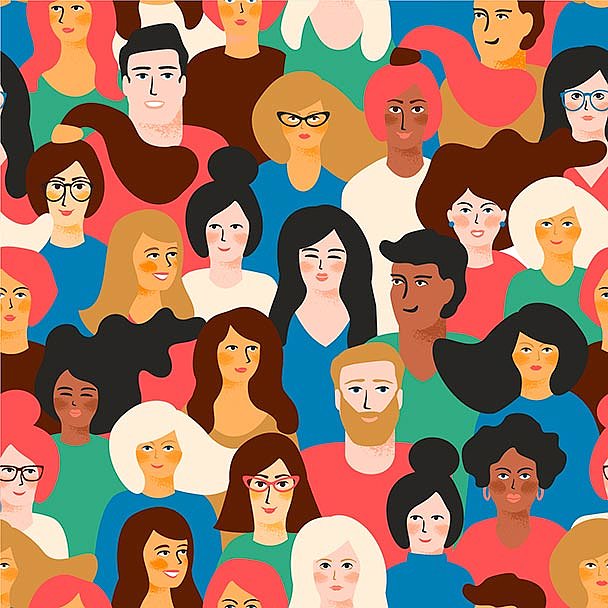
In Germany, students call each other ‘Kommilitonen’ – this is based on a Latin term that means something like ‘fellow combatants’. And that’s exactly how it really is: At Karls, I feel like I'm surrounded by people who are working for the same things and want to stand up for what’s right together. The professors, staff and other students are inspired by the idea of creating something bigger – committed to the environment, sustainability and a better world. That's why I don’t feel like there are any hierarchies here. I can chat with my professors as easily as with my roommate. I can confidently say: The people here are the ones who have made Karlsruhe a second home for me.
The Karls-Philosophy
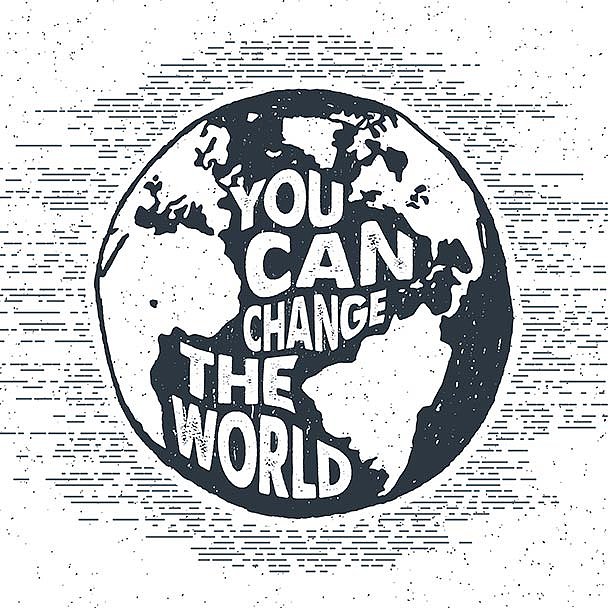
Karls has developed its own constructivist philosophy and didactics. The exact wording can be found on karlshochschule.de. But I can tell you in my own words how this philosophy feels to me and how it has become tangible in my life. Put briefly: At Karls, I can let myself and my ideas blossom. I can incorporate my knowledge, my ideals and my expectations and deepen them in a lively dialogue with my fellow students. My ideas are taken seriously here – I learn from my professors, of course, but my professors also learn from me. Instead of a strict curriculum and tons of theoretical knowledge, at Karls, I am given a wide range of information that I can structure however I want, and many opportunities to try it out in practice.
The Karls-Education
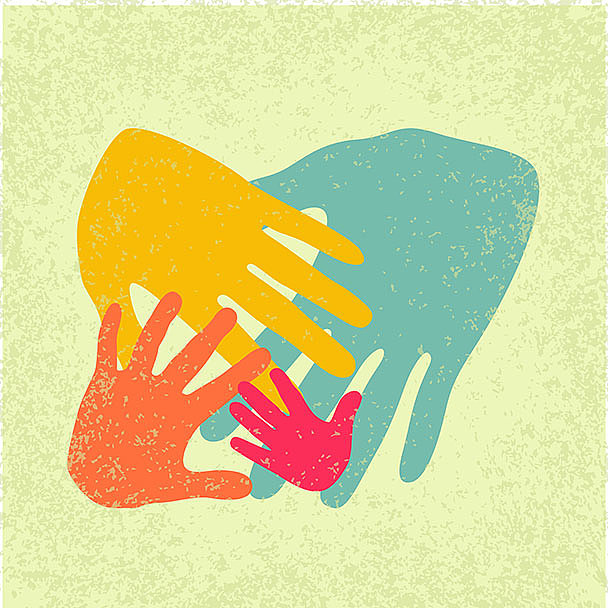
When I arrive at Karls in the morning, I overhear scraps of conversation between my classmates in English, German, French, Spanish and many other languages. It is precisely this open intercultural exchange that also shapes the experience of studying at Karls. Here, it’s totally normal for your course of study to cross the boundaries between disciplines. For example, it’s simply a matter of course for economists to be concerned with topics such as sustainability, environmental conservation and social justice. Conversely, sociologists at Karls are developing business models that will change the way we understand management. There’s no question that the idea of a language barrier is unimportant at the Karlshochschule. Most of the courses take place in English, and learning German is on the curriculum from day one.
Management
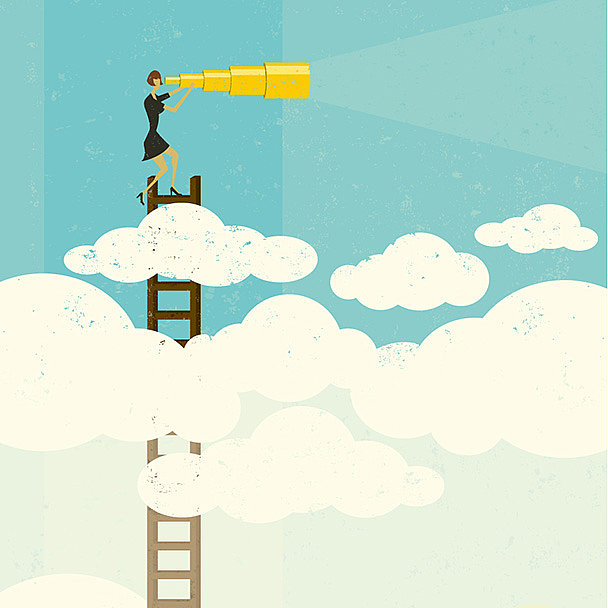
What should our future look like? How do we want to manage tomorrow? In the Management degree program, you will learn to take responsibility for a complex world in which negotiating skills are just as important as understanding and empathy. The pop-up menu gives you more information about your specialization options.
International Business
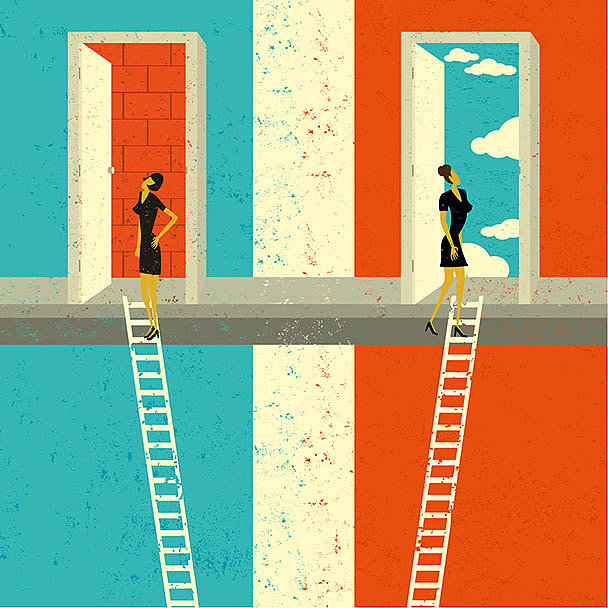
If you do not want to conceive of economics merely as a game of numbers, but instead want to understand and apply economic questions in an intercultural context, then you’ve come to the right place. You can design your own course of studies and specialize in three different areas.
Society
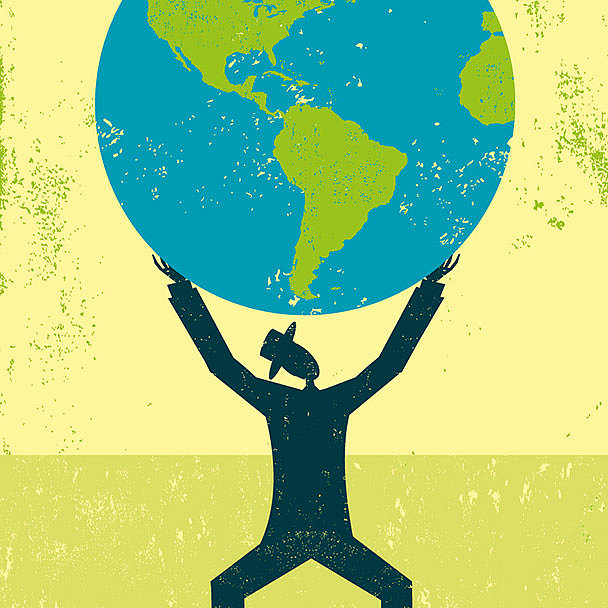
The world needs not only doers, but also thinkers. People who write the rules of the future and act as protagonists on the international political and economic stage. In these four courses of study in the field of ‘Society’, you’ll get exactly the know-how you need.
Management (M.A.)
The reality of economics and business is negotiated again and again between those involved in it. There are no universal truths, but rather well-functioning viewpoints. This is exactly what the course of studies conveys: Here, students and teachers work together on cultural and social science topics and apply them to management practice.
Spezialisierungen
Would you like to enter the creative industry or set up your own start-up? Do you want to make a difference in the political system of your country or, as the person in charge of an NGO, foster social change? Whatever your vision is: The Master's program offers you six different specializations from which you can choose two – so you can tailor your studies to your exact goals.
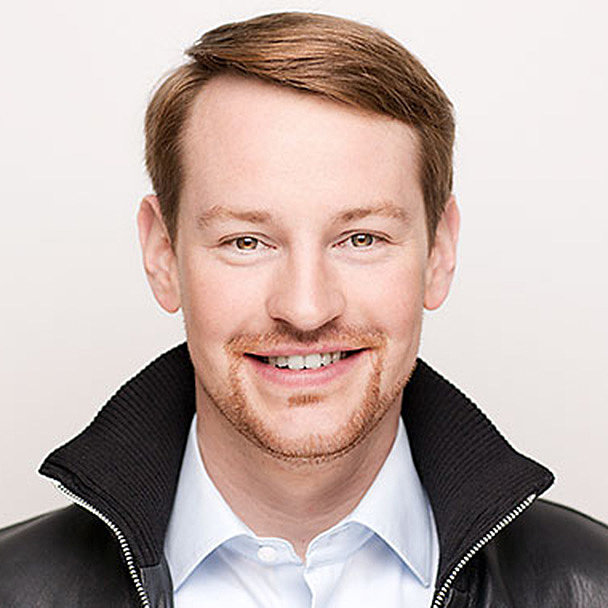
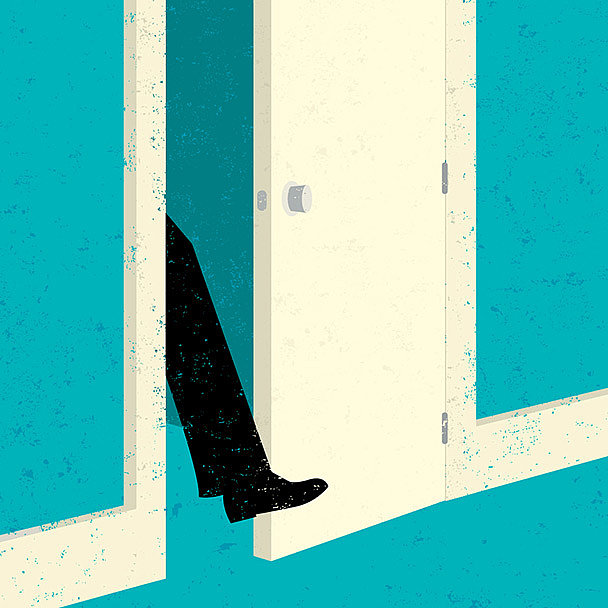
Way to Karls
Conditions

At Karls, we know that grades are not everything. Here, what counts above all is a person’s commitment and the values that define them – and that cannot be measured. The most important thing about your online application is therefore your letter of motivation. This is your chance to show us who you are and why you are a good fit for Karls. Karls is an officially accredited university and must adhere to the rules of the German registration authorities in the application process: Therefore, another prerequisite is a recognized secondary-school degree in Germany.
Help Center
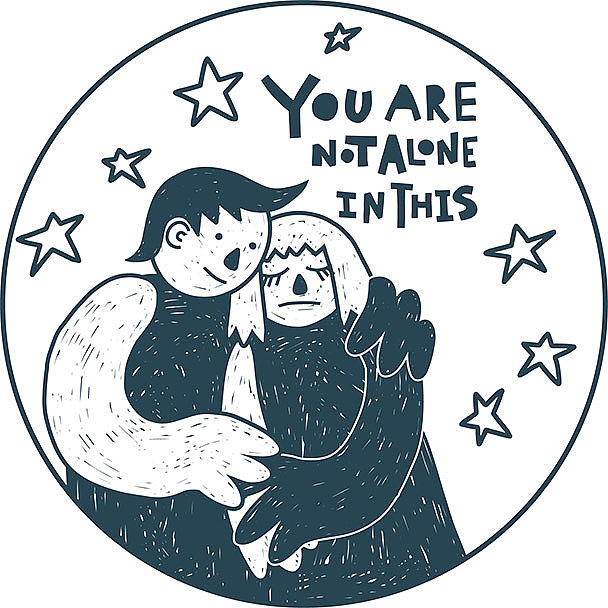
I've put together a bunch of PDFs for most countries on the South American continent. Here you will find a step-by-step checklist for your journey to Karls – from your letter of motivation to how to apply for grants and scholarships and even the application form for a visa. Also, the exact requirements for your education are in the PDF for your country or your region. In addition, you will find in the PDF the contact details of the most important contact persons, e.g. your consulate or embassy. If at any point you feel unsure – don’t worry: I'm here for you.
International Foundation Year

Are you thinking ‘Karls is exactly what I want for my life’, but unfortunately are missing the appropriate degree? Maybe you also have a very good school diploma, but it is not recognized by the German registration authorities? Don’t despair! Many of my fellow students once felt the same way. The solution for you might be the Foundation Year: Within a year, you will learn all the necessary content and then take an exam. This means you’ll meet the admission requirements and can enrol at Karls. Wondering if a Foundation Year is also for you? Write to me and I'll explain everything else, including where and when you can do it.
Get in Touch
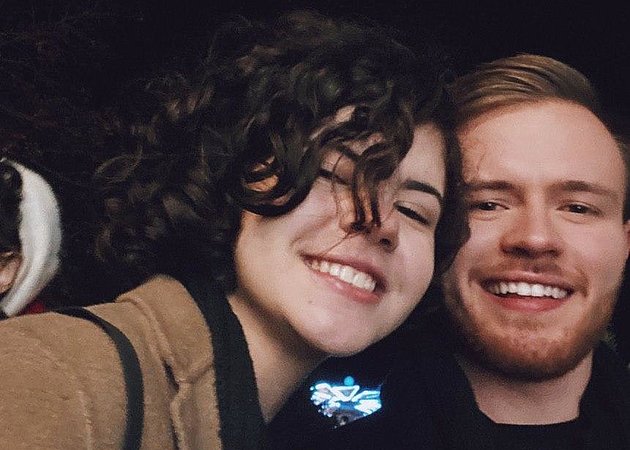
Karls-FAQ
https://karlshochschule.de/en/faq/
Ambassador (by me)
Informações gerais:
#Preciso saber falar alemão para estudar na Karlshochschule? Não é necessário nenhum conhecimento prévio de alemão, e a língua oficial da universidade é o inglês. Contudo, todos os estudantes estrangeiros têm aulas de Alemão.
#Qual a duração dos programas? Na Alemanha o bacharelado tem a duração de 3 anos, e o mestrado 2 anos.
#Qual o diferencial de estudar na Karlshochschule? A Karlshochschule é a universidade com mais estudantes internacionais da Alemanha (cerca de 40% dos estudantes). Baseada nos valores de ser um espaço aberto para diálogo e feedback, a Karls promove diversidade, inovação, e crescimento pessoal. A universidade nos incentiva a desenvolver nossos próprios projetos, ou participar de iniciativas criadas pelos nossos colegas. Durante os estudos, temos projetos com empresas e organizações e, um semestre exclusivo para estágio. Além disso, passamos um semestre estudando em um país diferente (podemos escolher entre mais de 100 universidades do mundo inteiro!). #O que é o International Foundation Year? O ano internacional de fundação, também chamado de Studienkolleg, é melhor maneira de se preparar para o bacharelado na Karls. Durante um ano, temos aulas de introdução a economia e negócios, desenvolvemos nossas habilidades de inglês e alemão, além de termos aulas de matemática e estudos sobre a cultura alemã. O objetivo é que no final do foundation year, todos os alunos tenham o mesmo nível de conhecimento.
Requisitos:
#Os diplomas brasileiros são reconhecidos na Alemanha? Como posso entrar na universidade?
Para Graduação:
Karlshochschule International University, Karlsruhe (Germany) www.karlshochschule.de/en
O diploma brasileiro de ensino médio sozinho não dá entrada para universidades alemãs, estudantes que possuem tal diploma precisam completar o International Foundation Year (Studienkolleg) antes da graduação. Estudantes que já possuem um diploma de ensino superior, ou que já estudaram em uma universidade por um ou mais anos, podem ser admitidos diretamente para o bacharelado. Estudantes com o International Baccalaureate (IB), Abitur, ou equivalente também podem ser admitidos diretamente. Também é necessário um certificado IETLS 6.0; TOELF 80; ou certificado equivalente. Recomendamos sempre aplicar, pois o Admissions Office irá avaliar sua aplicação e qualificações individualmente.
Para Mestrado:
Você pode entrar no mestrado se possuir um diploma de bacharelado nas áreas de administração/economia, ou ter pelo menos 30 ECTS (Sistema Europeu de Transferência de Créditos) nessas mesmas áreas. Caso sua graduação seja de outro campo de ensino, é necessário completar um semestre de PreMaster antes de entrar no mestrado. Também é necessário um certificado IETLS 6.5; TOELF 100; ou certificado equivalente. Recomendamos sempre aplicar, pois o Admissions Office irá avaliar sua aplicação e qualificações individualmente.
Para mais informações:
Em inglês: • DAAD database on admission requirements • admissions@karlshochschule.de • www.karlshochschule.de/en/bachelor/admission/applicationadmission-process/ • www.karlshochschule.de/en/master/further-info/applicationadmission/
Em português: • cde@karlshochschule.de • jbeber@karlshochschule.de
Mudando do Brasil para a Alemanha.
#O que preciso saber antes de ir? Aplicação para o visto
Brasileiros podem ficar até 3 meses na Alemanha sem visto, porém, é necessário a aplicação para tirar o visto de estudante dentro desse período. Os documentos necessários são:
• Formulário “Antrag auf Erteilung einer Aufenthaltserlaubni” preenchido (disponível no site da prefeitura) • Confirmação da matrícula “Immatrikulationsbescheinigung” • Um passaporte válido • Foto biométrica e cópia do passaporte • Seguro de saúde obrigatório alemão • Contrato de residência na Alemanha • Comprovação de recursos financeiros (mais informações em brasil.diplo.de/blob/1051460/209fc3f32430fc77dc0a0196294143 13/merkblatt-finanzierung-studienaufenthalt-pt-data.pdf)
Trabalho na Alemanha
Estudantes brasileiros na Alemanha têm o direito de trabalhar até 120 dias inteiros por ano. Quem não fala alemão pode optar por trabalhar com a universidade, em bares irlandeses ou em escolas de inglês. Se seu nível de alemão for bom, trabalhar em restaurantes e no comércio também são possibilidades. Mais informações sobre trabalhar na Alemanha em: vempraalemanha.com/dicas-de-trabalho-para-estudantes-na-alemanha/
#Mais informações úteis:
1. Comece a procurar por acomodação cedo, especialmente no começo do semestre de inverno (setembro - janeiro), há muitos estudantes internacionais chegando na cidade.
Karlshochschule International University, Karlsruhe (Germany) www.karlshochschule.de/en
2. Tenha certeza que seu passaporte é valido (não irá vencer nos próximos meses), renove-o antes de vir se a data de expiração estiver perto. 3. Após se mudar para Alemanha, você tem 2 semanas para se registrar na cidade (Anmeldung), você receberá um documento que servirá como seu comprovante de endereço.
Sobre Karlsruhe
#Qual é o custo de vida?
O custo de vida em Karlsruhe não é alto, porém depende muito do padrão de vida que você leva, da sua dieta e preferências. Aqui temos valores aproximados do custo de vida de um estudante comum, pode-se gastar bem menos e bem mais que isso.
• Seguro saúde: € 100 (mensais) • Acomodação: € 300 • Transporte € 30 (bilhetes semestrais custam € 156 para seis meses para usar todos os transportes públicos da região. Porém o meio mais popular de locomoção em Karlsruhe é a bicicleta) • Supermercado: € 165 • Academia: € 20
Os gastos mensais são de aproximadamente € 700
Com o objetivo de ajudar os brasileiros que querem estudar na Karlshochschule, nós estamos disponíveis para tirar qualquer dúvida. Também temos guias detalhados para como achar acomodação, tirar o visto e obter todos os documentos necessários para viver e estudar em Karlsruhe. Para saber mais entre em contato com a gente em: cde@karlshochschule.de & jbeber@karlshochschule.de
Com muito amor e carinho, Celinne de Paula & João Beber






